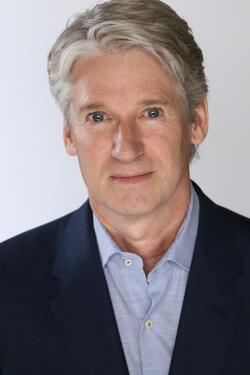By Pressley Peters
 Jeffrey Small ’89 B.A. is the co-founder and CEO of real estate investment company MDH Partners in Atlanta, where his investors include large university endowments and foundations.
Jeffrey Small ’89 B.A. is the co-founder and CEO of real estate investment company MDH Partners in Atlanta, where his investors include large university endowments and foundations.
After earning his undergraduate degree from Yale College (he majored in Political Science), Small went on to earn a J.D. from Harvard Law School and a master’s degree in the Study of Religions from Oxford University. Prior to founding MDH Partners, Jeff was the President and CEO of his family’s business, MD Hodges Enterprises, and an attorney with King & Spalding. He serves on the Board of Trustees of the Westminster Schools in Atlanta and the Episcopal Advisory Board of Candler School of Theology at Emory University, where he has also taught as an adjunct professor. He previously served as a trustee of the General Theological Seminary in New York. Jeff has published two best-selling novels along with an academic text. He and his wife, Alison, live in Atlanta.
Small met with YDS Dean Greg Sterling recently, and the two discussed Jeff’s wish to make a financial commitment in honor of his 35th reunion. Jeff’s experiences as a real estate investor with a focus on sustainability gave him great affinity with the Divinity School’s ambitious Living Village project. “When I spoke with Dean Greg Sterling, his groundbreaking views on combining theology and sustainability in a concrete way with the Living Village spoke to me,” Small said.
The Living Village residence hall is expected to open in 2025 and will house about 50 students. Not only will the Living Village increase the school’s square footage by 37.5 percent, but in setting a new standard for sustainable design, it will embody the school’s commitment to ecotheology and affordable housing for students. The project is one of several actions YDS is taking, from curriculum to operations to buildings, to train students to become what Sterling calls “apostles of the environment.”
YDS Communications conducted the following interview with Small to learn more about his support of YDS and why he finds joy in giving.
As a Yale College alum, how have you become interested in supporting the Living Village at YDS?
I am so grateful for my Yale experience. My years there were a formative time for me—lasting friendships, challenge in the classroom, interesting people with fascinating ideas. Some of my best learning occurred over two-hour lunches in Davenport or hanging around the dorm suites with friends. When I was at Yale, I unfortunately had no exposure to the Divinity School. But since then, I’ve completed a master’s in religious studies at Oxford, where my research led me to explore ways of fostering greater dialogue between Christianity and Buddhism. As a real estate investor, I am always looking at creative and pioneering construction techniques to bring sustainable designs to our projects. My support of the Living Village seems fated. My real estate experience, my growth at Yale, and my interest in theological education intersected in the same place at the right time.
How do you imagine your generosity might impact YDS students, the Divinity School, and our world?
My experience at Oxford taught me that theological education is not solely intellectual. At Yale Divinity School the experience of living in community matters greatly, which students would miss out on in an online-only environment. In the Living Village, students will interact with and learn from each other. That’s at the heart of Yale.
What inspires you about Yale Divinity School’s future?
As a lifelong Episcopalian, I’ve seen Yale as the leader in theological education. Having the resources of the broader university combined with the history of the Divinity School makes YDS unique. Talking to friends who are priests and bishops in the church, we agree that Yale is on a pedestal and has been the intellectual thought leader over decades. Dean Sterling’s vision of sustainability through a theological lens is just one example of this leadership.
Why does giving bring you joy?
Giving is an emotional, gut-level feeling more than an intellectual one. It leaves a lasting impression that continues over time.
As mortal creatures we are searching and longing for a connection with something bigger than we are. For me, this deeper connection is at the heart of agape, or divine love. In English, we have one word for “love,” but the Greeks had multiple words for “love” to distinguish brotherly love from familial love from romantic love. Agape is love that is fully outward and freely given with nothing expected in return, and I think of philanthropy in that way. It’s authentic generosity of one’s heart without condition.
If I am able improve education for someone else, that gift multiplies into something greater than me.